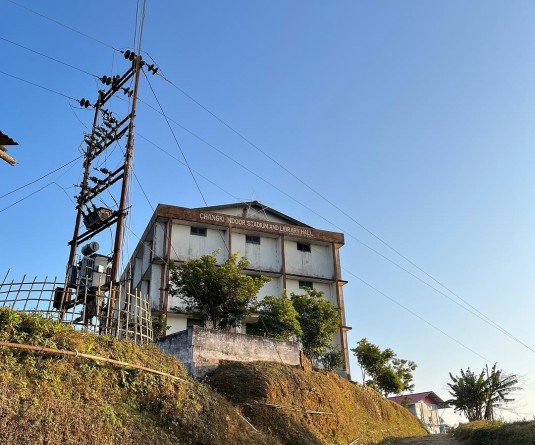
Our Correspondent
Kohima | February 27
The International Livestock Research Institute (ILRI) has declared that the piggery sector in Nagaland state “still requires more attention” in terms of “policy framework.” This was stated at the ‘Policy Dialogue on Mainstreaming models for pig-based livelihood improvement in Nagaland’ held at Hotel Japfu, Kohima on February 25.
Parliamentary Secretary for Veterinary and Animal Husbandry, Yitachu, speaking at the occasion, said that concerned department plays a major role for sustainability of the rural economy in the state.
Parliamentary Secretary for Veterinary and Animal Husbandry, Yitachu, speaking at the occasion, said that concerned department plays a major role for sustainability of the rural economy in the state.
Stating that rural people earn their livelihood through the channel of veterinary and animal husbandry, Yitachu stressed on the need to broaden the horizon and educate farmers on technical know-how of rearing livestock to meet the requirements.
Speaking at the policy meet on “Mainstreaming models for pig based livelihood improvement in Nagaland,” organized by the International Livestock Research Institute (ILRI) and North East Development Agency (NEIDA), the nodal agency for the north east initiative of the Sir Ratan Trust and Navajbai Ratan Trust, he also extended support to the concerned agencies working for the benefit of the farmers, to get access to any source of assistance and technical knowledge.
Yitachu also stressed on the need to do away with the subsidy culture and affirmed that the deserving beneficiary is taken into account to translate the very purpose of the schemes and packages into a reality.
Bendangkokba, Secretary for Veterinary and Animal Husbandry also spoke on the occasion, while the welcome address was delivered by Sentimongla Kechuchar.
It may be recalled that the ILRI, with funding from the Tata Trusts’ and supported by the Nagaland State Veterinary and Animal Husbandry department, implemented a pilot project on three models: improvement of pig nutrition through public private partnership, pig service delivery in inaccessible locations through village based self employed youth and control of classical swine fever diseases affecting pigs.
After the deliberations and discussions, the Department assured that all the three successful models will be adopted in the Special Purpose Vehicles (SPV) APFADON of the AH&V department. The Department also agreed to consider scaling up of the Livestock Service Delivery model in remote locations, setting up of a state level Classical Swine Fever control Programme and promotion of local resource based pig nutrition programme by utilizing Veterinary and Animal Husbandry Department resources.
The policy meet brought leading officials, policy makers, international and non-governmental organizations, private sector constitutes, donor and development agencies together on a common platform for decision making and effective implementation of innovative policies.
The policy dialogue aims to mainstream the tested models using public resources so that the benefits reach the ‘last mile’ of development.





